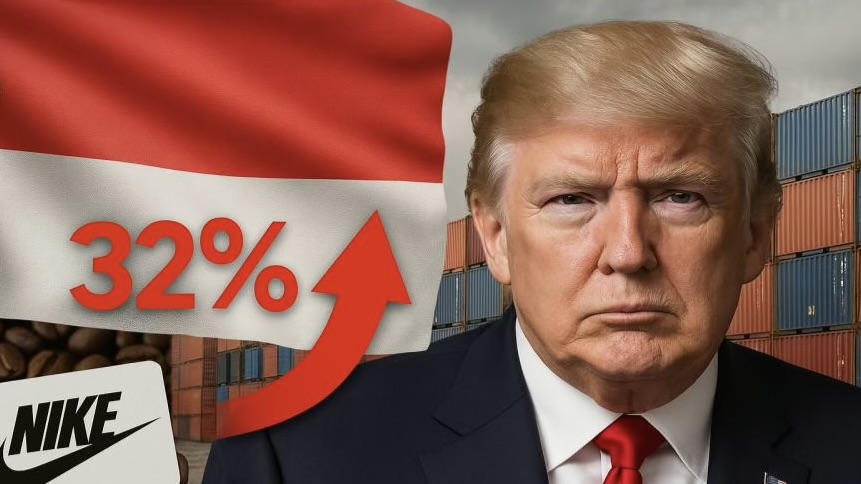Global Trade Shocked by New Wave of U.S. Economic Pressure.
In April 2025, U.S. President Donald Trump announced the introduction of new import tariffs, including a 32% duty on goods from Indonesia. This move is part of a broader “reciprocal tariffs” policy aimed at eliminating what the Trump administration views as unfair trade practices by other countries.
In April 2025, U.S. President Donald Trump announced the introduction of new import tariffs, including a 32% duty on goods from Indonesia. This move is part of a broader “reciprocal tariffs” policy aimed at eliminating what the Trump administration views as unfair trade practices by other countries.

Tariff Implementation Details
A 10% universal tariff came into effect on April 5, while retaliatory tariffs against Indonesia and 60 other countries will take effect on Wednesday, April 9. These measures are part of the “America First” strategy, aimed at boosting domestic manufacturing and leveling the playing field in trade.
Impact on Indonesia
Indonesia, one of the largest exporters to the U.S. — particularly in the textile and footwear industries — has come under significant pressure. International companies have also been affected, including Nike, which manufactures a large portion of its products in Indonesia.
Nike shares dropped 13%, losing $12 billion in market capitalization.
Jakarta’s Response
The Indonesian government expressed concern and announced plans to diversify its trade partnerships, reduce dependence on the U.S., and protect local producers.
“We consider these tariffs excessive and market-distorting. We are looking for new partners and agreements,” said Deputy Minister of Trade Dyah Roro Esti Widya Putri.
Global Consequences
Trade markets have been shaken. Prices for coffee, cocoa, and sugar have dropped due to fears of declining U.S. demand. Stock markets have also experienced significant fluctuations, reflecting growing uncertainty.
The introduction of a 32% tariff on Indonesian goods and the Trump administration’s global tariff policy present new challenges for developing economies. This situation highlights the need for flexibility in international trade and the ability to adapt to changes on the global stage.
Source: nusabali.com


You can add one right now!